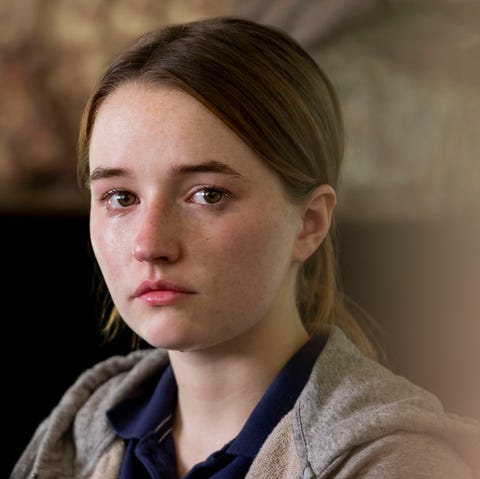This content is imported from YouTube. You may be able to find the same content in another format, or you may be able to find more information, at their web site.
Unbelievable racked up four Emmy nominations this year, including Outstanding Supporting Actress in a limited series or movie for Toni Collette’s role as Grace Rasmussen. The character is based on real life police officer Edna Hendershot, who worked to solve the case of a serial rapist. In honor of the awards show this Sunday, we’re republishing our piece about the true story that inspired Unbelievable.
Netflix’s new eight-episode series Unbelievable tells the real-life story of an 18-year-old Washington woman named Marie (played by Kaitlyn Dever), who was bound and gagged in her Lynwood apartment by a perpetrator, then raped as he took photographs of her. When she reported the vicious attack to police however, the officers—with very little regard for the toll of recounting trauma—charged her with filing a false report.
Three years later, two female detectives Edna Hendershot (played by Merritt Wever and Toni Collette) in Colorado investigated a string of sexual assaults with the exact same modus operandi and linked them back to Marie’s case, proof she’d been telling the truth all along.
The heartbreaking story, created by Erin Brockovich screenwriter Susannah Grant, is based on a 2015 Pulitzer Prize-winning article published in a joint project by T. Christian Miller of ProPublica and Ken Armstrong of The Marshall Project.
When Marie first reported the rape, she was asked by police over and over again to share her story, and recall every single detail of what had happened. As Miller and Armstrong’s article show, she began to contradict herself and was eventually hounded into recanting her report. After she was charged with making a false police report, she accepted a plea deal that resulted in a $500 payment for court fees.
“When the police began doubting Marie, they turned on her,” Armstrong told NPR. “The focus of the investigation became her credibility. And instead of interviewing Marie as a victim, they began interrogating her as a suspect. Marie buckled under that pressure. It was the easiest way out for her. So she recanted. And the way she describes it, when she did recant, it came with this tremendous sense of relief. It was almost as though she had unburdened herself.”
“I do think that police recognize the dangers of skepticism more now than they might have before,” Armstrong adds. “Joanne Archambault, she’s a former sergeant for the San Diego Police Department where she supervised the Sex Crimes Unit. The way she puts it is skepticism can become a self-fulfilling prophecy. When police challenge rape victims, accuse them of lying, victims often shut down and sometimes even recant, as in Marie’s case. That then reinforces the belief that many rape claims are false, which leads police to challenge the next victim. It can become a cycle.”
The Colorado detectives on her case eventually arrested serial rapist Marc Patrick O’Leary, who pleaded guilty to 28 counts of rape and associated felonies in Colorado, as well as two in Washington state. Photographs of Marie were found on his camera.
Lynnwood Police Chief Steven Jensen requested an outside review of his department’s handling of the investigation, in which Sgt. Gregg Rinta, a sex crimes supervisor with the Snohomish County Sheriff’s Office, wrote it was “nothing short of the victim being coerced into admitting that she lied about the rape.”
Marie sued the city of Lynwood and settled for $150,000. After that, she left Washington, got married, and had two children.
“She’s doing well,” Armstrong told NPR. “One of the things that Marie told us is that after all of this happened, she didn’t want to live in fear. She didn’t want to let this experience limit her in how she went about the rest of her life. These days she’s a long haul truck driver. She drives an 18-wheeler across the country. She and I speak fairly often. And it seems like every time I talk to her she’s in a different state. She is strong. And she is resilient.”
“I don’t want to cower in the corner,” Marie told ProPublica. “I didn’t want it to ruin the rest of my life. I didn’t want to give him the satisfaction. I wasn’t going to let him destroy me.”
This content is created and maintained by a third party, and imported onto this page to help users provide their email addresses. You may be able to find more information about this and similar content at piano.io



